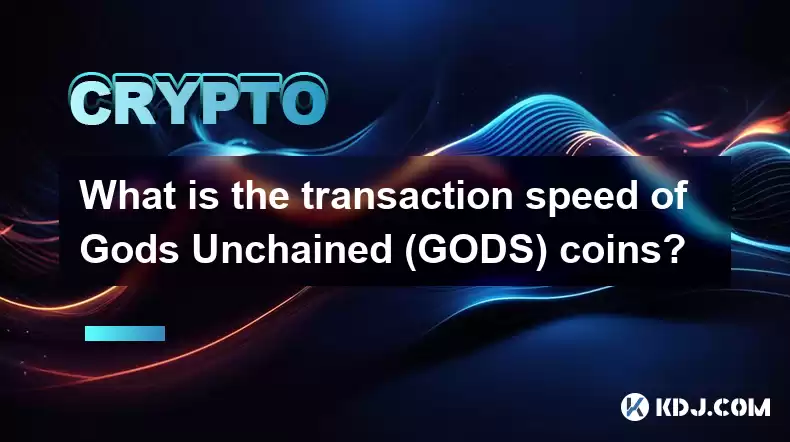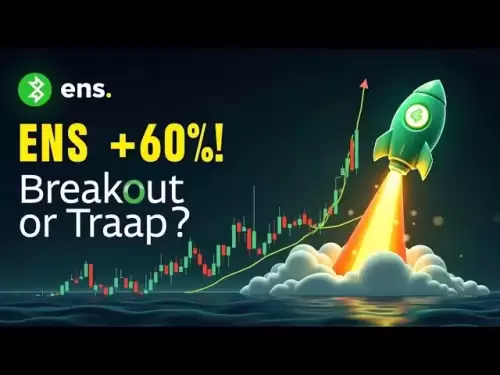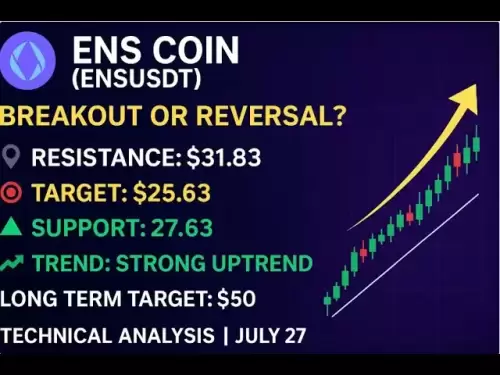-
 Bitcoin
Bitcoin $117900
0.31% -
 Ethereum
Ethereum $3766
0.28% -
 XRP
XRP $3.176
-0.31% -
 Tether USDt
Tether USDt $1.000
0.00% -
 BNB
BNB $795.6
1.51% -
 Solana
Solana $186.8
-1.09% -
 USDC
USDC $0.9999
-0.01% -
 Dogecoin
Dogecoin $0.2353
-1.33% -
 TRON
TRON $0.3226
1.49% -
 Cardano
Cardano $0.8172
-1.08% -
 Sui
Sui $4.178
3.06% -
 Hyperliquid
Hyperliquid $43.05
-3.39% -
 Stellar
Stellar $0.4367
-0.57% -
 Chainlink
Chainlink $18.62
1.47% -
 Hedera
Hedera $0.2828
6.63% -
 Bitcoin Cash
Bitcoin Cash $584.7
5.65% -
 Avalanche
Avalanche $24.81
2.53% -
 Litecoin
Litecoin $112.8
-0.88% -
 UNUS SED LEO
UNUS SED LEO $8.975
-0.08% -
 Shiba Inu
Shiba Inu $0.00001395
-1.07% -
 Toncoin
Toncoin $3.285
-1.05% -
 Ethena USDe
Ethena USDe $1.001
0.01% -
 Polkadot
Polkadot $4.123
0.76% -
 Uniswap
Uniswap $10.49
-0.18% -
 Monero
Monero $326.5
0.14% -
 Dai
Dai $0.9999
-0.02% -
 Bitget Token
Bitget Token $4.576
0.34% -
 Pepe
Pepe $0.00001247
-1.55% -
 Cronos
Cronos $0.1400
3.77% -
 Aave
Aave $295.1
-0.73%
What is the transaction speed of Gods Unchained (GODS) coins?
The transaction speed of GODS coins depends on Ethereum network congestion, gas fees, and wallet type, so optimizing for faster transactions involves selecting low-congestion times, adjusting gas prices, and using efficient wallets.
Dec 28, 2024 at 05:15 pm

Key Points:
- Gods Unchained (GODS) is an Ethereum-based trading card game that allows players to collect, trade, and battle cards representing various gods and creatures.
- The transaction speed of GODS coins depends on the Ethereum network, which can vary depending on network congestion and gas fees.
- Players can use GODS coins to purchase cards, enter tournaments, and participate in governance decisions related to the game.
- GODS coins can be stored in a variety of cryptocurrency wallets compatible with the Ethereum network.
Transaction Speed of Gods Unchained (GODS) Coins
The transaction speed of GODS coins is influenced by several factors, including:
1. Network Congestion:
- Ethereum is a popular blockchain platform, and network congestion can occur during periods of high activity, such as during new token launches or major network upgrades.
- When the network is congested, transactions may take longer to process and confirmation times may increase.
2. Gas Fees:
- Gas fees are transaction fees paid to network validators for processing transactions on the Ethereum blockchain.
- Gas fees are determined by the complexity of the transaction and the current network demand.
- Users can adjust their gas price to expedite transactions, but this will increase the cost of the transaction.
3. Wallet Type:
- The type of cryptocurrency wallet used can also affect transaction speed.
- Hardware wallets typically have slower transaction speeds than software wallets due to security measures, while exchange-based wallets may have faster transaction speeds but may require additional verification steps.
Steps to Improve Transaction Speed of GODS Coins:
- Choose the right time to transact: Avoid sending transactions during peak network usage hours to minimize congestion.
- Adjust gas price: Increase the gas price to expedite transactions, but be aware of the potential cost increase.
- Use a fast wallet: Consider using a software wallet or an exchange-based wallet with fast transaction speeds.
- Consider using a layer-2 solution: Layer-2 solutions, such as Polygon, can help reduce gas fees and improve transaction speeds on the Ethereum network.
FAQs Related to GODS Coin Transaction Speed
1. How long does a GODS coin transaction typically take?
The transaction time can vary depending on network congestion and gas fees. On average, a GODS coin transaction can take anywhere from a few seconds to several minutes.
2. Are there any limits to the number of GODS coins that can be transacted in a single transaction?
No, there is no limit to the number of GODS coins that can be transacted in a single transaction.
3. Can I send GODS coins to and from exchanges?
Yes, GODS coins can be sent to and from cryptocurrency exchanges that support the token. However, withdrawals may be subject to exchange processing times.
4. What is the minimum amount of GODS coins that I can send in a transaction?
The minimum amount of GODS coins that can be sent in a transaction is typically set by the wallet or exchange used. This amount may vary depending on the platform.
Disclaimer:info@kdj.com
The information provided is not trading advice. kdj.com does not assume any responsibility for any investments made based on the information provided in this article. Cryptocurrencies are highly volatile and it is highly recommended that you invest with caution after thorough research!
If you believe that the content used on this website infringes your copyright, please contact us immediately (info@kdj.com) and we will delete it promptly.
- Ruvi AI: The Next Solana? Riding the AI Token Wave on CoinMarketCap
- 2025-07-28 00:50:16
- BlockDAG, Crypto Coin, XRP, ADA, and SUI: Navigating the 2025 Crypto Landscape
- 2025-07-28 00:30:16
- Riding the Bulls: ROI Tokens and the 2025 Momentum
- 2025-07-28 00:55:14
- Coinbase Wallet: Security, Reviews, and What's the Hype?
- 2025-07-28 00:30:16
- Crypto ETFs and Altcoins: Navigating the Wild West with Meme Coins and Tokenized Assets
- 2025-07-27 23:04:06
- Pi Coin in 2026: Will It Be Worth the Wait?
- 2025-07-27 23:10:12
Related knowledge

What is Chainlink (LINK)?
Jul 22,2025 at 02:14am
Understanding Chainlink (LINK): The Decentralized Oracle NetworkChainlink is a decentralized oracle network designed to bridge the gap between blockch...

What is Avalanche (AVAX)?
Jul 22,2025 at 08:35am
What is Avalanche (AVAX)?Avalanche (AVAX) is a decentralized, open-source blockchain platform designed to support high-performance decentralized appli...

What is Polkadot (DOT)?
Jul 19,2025 at 06:35pm
Understanding the Basics of Polkadot (DOT)Polkadot (DOT) is a multi-chain network protocol designed to enable different blockchains to transfer messag...

What is Litecoin (LTC)?
Jul 23,2025 at 11:35am
Overview of Litecoin (LTC)Litecoin (LTC) is a peer-to-peer cryptocurrency that was created in 2011 by Charlie Lee, a former Google engineer. It is oft...

What is Monero (XMR)?
Jul 21,2025 at 10:07am
What is Monero (XMR)?Monero (XMR) is a decentralized cryptocurrency designed to provide enhanced privacy and anonymity for its users. Unlike Bitcoin a...

How to add indicators to Ethereum chart on TradingView?
Jul 19,2025 at 07:15am
What Is an Ethereum Chart on TradingView?The Ethereum chart on TradingView is a visual representation of the price movement of Ethereum (ETH) over a s...

What is Chainlink (LINK)?
Jul 22,2025 at 02:14am
Understanding Chainlink (LINK): The Decentralized Oracle NetworkChainlink is a decentralized oracle network designed to bridge the gap between blockch...

What is Avalanche (AVAX)?
Jul 22,2025 at 08:35am
What is Avalanche (AVAX)?Avalanche (AVAX) is a decentralized, open-source blockchain platform designed to support high-performance decentralized appli...

What is Polkadot (DOT)?
Jul 19,2025 at 06:35pm
Understanding the Basics of Polkadot (DOT)Polkadot (DOT) is a multi-chain network protocol designed to enable different blockchains to transfer messag...

What is Litecoin (LTC)?
Jul 23,2025 at 11:35am
Overview of Litecoin (LTC)Litecoin (LTC) is a peer-to-peer cryptocurrency that was created in 2011 by Charlie Lee, a former Google engineer. It is oft...

What is Monero (XMR)?
Jul 21,2025 at 10:07am
What is Monero (XMR)?Monero (XMR) is a decentralized cryptocurrency designed to provide enhanced privacy and anonymity for its users. Unlike Bitcoin a...

How to add indicators to Ethereum chart on TradingView?
Jul 19,2025 at 07:15am
What Is an Ethereum Chart on TradingView?The Ethereum chart on TradingView is a visual representation of the price movement of Ethereum (ETH) over a s...
See all articles

























































































